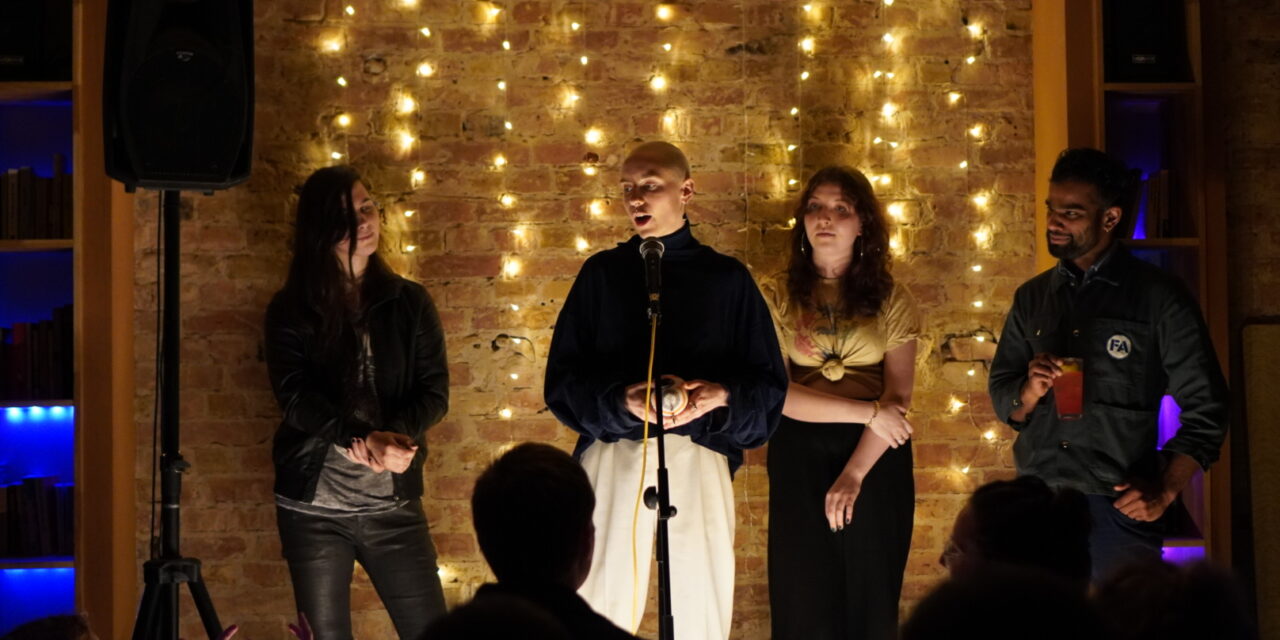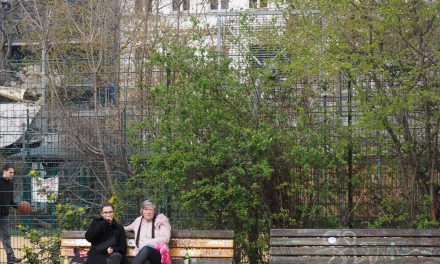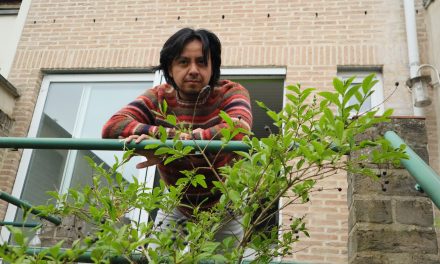Rhythm, voice and body language emerge. Is it rap? Is it singing? Is it poetry? Spoken word is all of it and writers in Berlin elaborate to all of it. Official stats shows, 35 percent people in Berlin have foreign roots. Some of those citizens are multilingual writers and are coming together during spoken word events. How is the spoken word scene developed in Berlin?
Migration to Germany has become more diverse since the late 20th century. After the first wave of guest workers, mainly from Italy and Turkey, more and more migrants from very different backgrounds arrived. This migration has given an enormous boost to the enrichment of the German literary landscape. Migrant literature is a broad concept. It is characterized by transculturalism, which means that a story is influenced by multiple cultures. This coming together of cultures is rarely without conflict. There is a cultural clash in migrant literature. Elements that often appear in migrant literature are loss of the Heimat (the former home), living in a foreign environment, searching for identity and breaking contact with friends and family. The writers often view German society from a different perspective and enrich German literature with influences from other cultures.
Poet Allia Sadeghipour migrated from Los Angeles to Berlin to heal from past traumas and search for solidarity with other queers.
https://youtu.be/ZQ8oBoFkzOY
From Poetry Slam to Spoken Word
Poetry Slam came over from America in the mid-1990s and is nowhere in Europe as popular as in the German-speaking countries. Different poets/slammers fight each other on stage with their own, sometimes improvised poetry. The audience decide, by applause or with points, which poet comes out as the winner. The form and content of slam poetry are not prescribed, everything is allowed, as long as the poet declaims his own creation.
Fast forward to the year 2015. Spoken Word artists and friends Mary Vlosich and Naniso Tswai meeting each other at a poetry slam. They are missing a low-key place where you can just show your words on stage without a competition. An international open mic comes to mind. Everyone who writes in any language – rather poetry, short stories, rap, comedy – they are welcome to sign up and get on the stage. It’s April 14th in the evening and the open mic of Berlin Spoken Word starts at cafe Das Gift in Berlins district Neukölln. Mary is tonights host. Naniso is abroad.
“Our events are a comfortable and a save challenge for people. We filter out a lot of people who out here to win or to perform to compete. We have a very special thing that we love to make the evening unique, with a different setlist and a different theme every week. We find it important that everyone feels comfortable and familiar. Sometimes people tell me after the break that they want to try to get on the stage and perform. Everyone deserves to have space held for them and take up space, and everyone deserves to be listened to. That’s the important part for me”, Mary explains.
Poet Allia Sadeghipour finds the Spoken Word scene in Berlin more refreshing and inspiring.
https://youtu.be/190MGIiDOG0
Becoming a community
Mary and Naniso wanted to be sure to create a safe space for everyone. Through the years they came across events where the night ended not for everyone pleasant. That was the moment they wanted to be clear to the audience and be sure to have guidelines. These guidelines consider ‘no racism, transphobia, homophobia, sexism, beliefs, classism, ableism or hate speech that support and perpetuate power structures of oppression.’
“We had to find the balance to say you can be open but not attacking. That was first hard because we want to be liked by everyone. But that’s impossible and at the end we want to be a safe space where everyone feels welcome and heard in every language”, Mary says. “This kind of community is empowering. Poetry is not what it is, but what it does. A poet can use metaphors and tropes to communicate their emotional process. Everyone in the audience has their own reaction. That can led to a domino-effect and bring everything together.”
Poet Allia Sadeghipour feels the importance of the community.
https://youtu.be/K1PZxRenJHM




